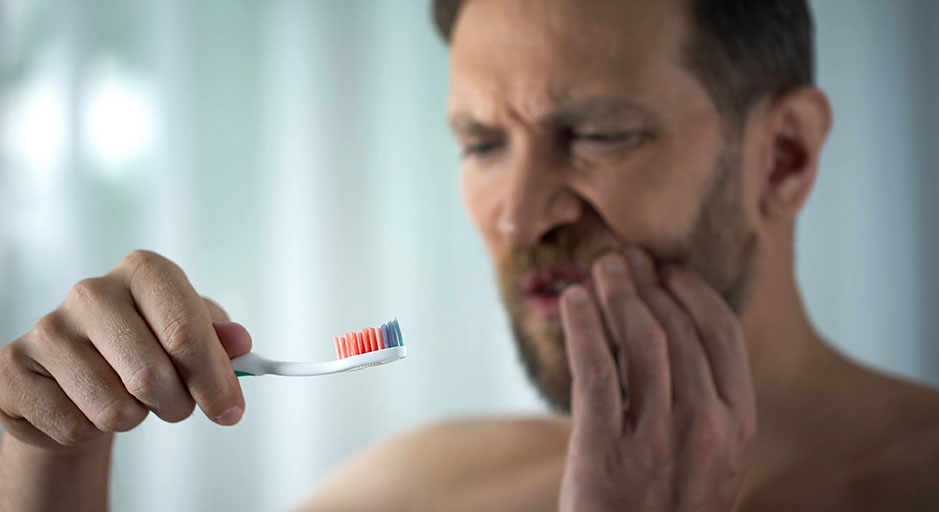A Comprehensive Guide to Sensitive Teeth: Causes, Treatment, and Prevention
Experiencing tooth sensitivity? You’re not alone… Our team at Dentarana are all too familiar with our patients expressing concerns about sensitive teeth, so join us as we dive deeper into the causes, treatments and preventative measures.
Sensitive teeth and gums can hinder everyday activities like eating and drinking, impacting your overall well-being. That’s why it’s crucial to discover the ideal treatment for sensitive teeth that suits you best.
In this informative piece, we address common inquiries about tooth sensitivity while delving into effective treatments to alleviate this discomforting condition permanently.
Why do I Suddenly Have Sensitive Teeth?
There are several reasons why you may experience tooth sensitivity. It is essential to understand the underlying causes in order to effectively address the issue. Here are some common reasons for sensitive teeth:
- Tooth enamel erosion: Over time, the protective layer of tooth enamel can wear down, exposing the underlying dentin. This dentin contains microscopic tubules that lead to the tooth’s nerves, resulting in sensitivity.
- Gum recession: Receding gums can expose the tooth roots, which are not as well protected as the enamel. This exposure can lead to heightened sensitivity when consuming hot or cold substances.
- Tooth decay: Cavities or dental caries can cause sensitivity, particularly if they reach the tooth’s inner layers where the nerves are located.
- Teeth grinding (bruxism): Habitual grinding or clenching of teeth can wear down the enamel, making the teeth more susceptible to sensitivity.
- Dental procedures: Some dental treatments, such as teeth whitening, fillings, or crown placement, may cause temporary sensitivity as a side effect.
- Acidic diet: Frequent consumption of acidic foods and beverages can erode the enamel, making the teeth more sensitive.
- Cracked or fractured teeth: When a tooth is cracked or fractured, it can expose the nerves, leading to sensitivity, especially when biting or chewing.
It is crucial to consult with a dental professional to determine the exact cause of your tooth sensitivity. They can provide a comprehensive evaluation and recommend appropriate treatments to alleviate the discomfort and protect your oral health.
When to Worry about Sensitive Teeth?
As dental professionals, we understand your concern about sensitive teeth. While occasional sensitivity is common and often harmless, there are situations when you should take it seriously. Here are some signs that indicate you should seek professional dental care for your sensitive teeth:
- Persistent or worsening sensitivity: If you experience consistent or escalating tooth sensitivity, it’s important not to ignore it. This could indicate an underlying dental issue that requires attention.
- Severe pain or discomfort: If your sensitive teeth cause intense pain or discomfort that interferes with your daily life, it’s crucial to schedule a dental appointment promptly. Severe sensitivity might be a sign of tooth decay, an infection, or other dental problems that require immediate treatment.
- Sudden onset of sensitivity: If you suddenly develop sensitive teeth without any apparent cause, it’s wise to consult your dentist. It could be a symptom of an underlying dental condition that needs to be addressed.
- Sensitivity accompanied by other symptoms: If your sensitive teeth are accompanied by symptoms like swollen gums, bleeding, tooth discoloration, or persistent bad breath, it could indicate gum disease or tooth infection. These conditions require professional intervention to prevent further complications.
- Sensitivity after dental procedures: It’s normal to experience temporary sensitivity after certain dental treatments like teeth whitening, fillings, or crown placements. However, if the sensitivity persists or becomes severe, it’s essential to inform your dentist, as it may require further evaluation and adjustment.
Remember, your dental health is crucial, and addressing sensitive teeth promptly can help prevent more significant issues down the line. Your dentist is the best person to assess the situation, determine the underlying cause of your sensitivity, and provide appropriate treatment options to alleviate your discomfort. Don’t hesitate to reach out to them and discuss your concerns for optimal oral health and peace of mind.
How Do You Fix Sensitive Teeth?
If you’re one of the many people who suffer from sensitive teeth, we have good news. There are several sensitive teeth treatment options available that can help to eliminate or reduce your sensitivity.
- Fluoride treatment: Your dentist may recommend a fluoride treatment to strengthen your tooth enamel and reduce sensitivity, particularly if you suffer from enamel erosion or tooth decay.
- Dental bonding: In some cases, your dentist may apply dental bonding or sealants to cover exposed tooth surfaces and protect them from sensitivity.
- Surgical gum graft: If your sensitive teeth are caused by gum recession, you may require a gum graft to cover the exposed tooth roots and reduce sensitivity.
How Can I Get Rid of Sensitive Teeth at Home?
While it’s always recommended to consult with a dentist for proper diagnosis and treatment of sensitive teeth, there are some at-home remedies you can try to help alleviate the discomfort. Here are a few suggestions:
- Switch to a soft-bristled toothbrush: Using a toothbrush with soft bristles can help minimise irritation and prevent further enamel erosion, which can contribute to tooth sensitivity.
- Use desensitising toothpaste: Choose a toothpaste specifically designed for sensitive teeth. These toothpastes contain ingredients that help block nerve signals and reduce sensitivity over time. Consistent use is key for maximum effectiveness.
- Maintain good oral hygiene: Brush your teeth at least twice a day and floss daily to remove plaque buildup and maintain oral health. This can prevent gum disease and tooth decay, which can exacerbate tooth sensitivity.
- Avoid acidic foods and drinks: Acidic substances can erode tooth enamel and worsen sensitivity. Limit your consumption of acidic foods and beverages like citrus fruits, soda, and vinegar-based products.
- Limit teeth grinding: If you grind your teeth, especially at night, consider using a mouthguard provided by your dentist. This can protect your teeth from excessive grinding forces and reduce sensitivity.
- Practise proper brushing techniques: Avoid aggressive brushing or using excessive force, as this can wear down enamel and lead to sensitivity. Instead, use gentle, circular motions and a light touch when brushing.
- Rinse with a fluoride mouthwash: Using a fluoride mouthwash can help strengthen tooth enamel and reduce sensitivity. Incorporate it into your oral hygiene routine after brushing.
Does teeth sensitivity go away?
Sensitive teeth can be managed and often improved, but whether they completely go away depends on the underlying cause. In some cases, sensitivity may resolve on its own or with appropriate treatment, leading to a significant reduction or elimination of symptoms. However, in other situations, sensitivity may persist despite efforts to manage it.
At what Age Does Tooth Sensitivity Start?
Tooth sensitivity can occur at any age, and there isn’t a specific age when it starts for everyone. However, it is more commonly reported among adults. As we age, our teeth and gums can undergo changes that increase the likelihood of experiencing sensitivity. Factors such as enamel wear, gum recession, and tooth root exposure can contribute to sensitivity.
Your dentist is the best person to speak to about your sensitive teeth – they can identify the cause, assess any underlying issues, and help you choose a sensitive teeth treatment that’s right for you.
If you’re concerned about sensitive teeth, make an appointment at Dentarana today!





